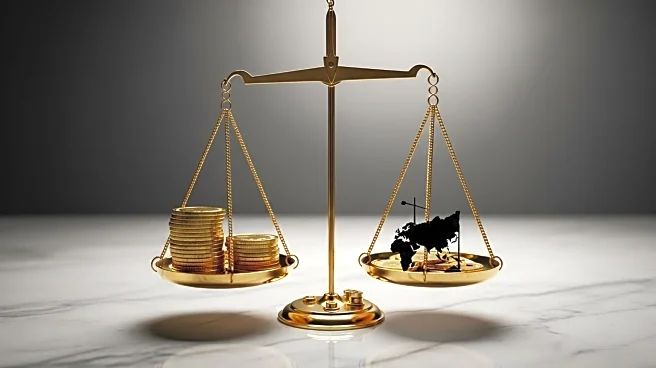What's Happening?
Russian President Vladimir Putin has expressed intentions to raise taxes on wealthy individuals to support funding for the ongoing Ukraine war. During a statement on Thursday, Putin referenced historical precedents set by the United States during the Vietnam War and the Korean War, where taxes were increased specifically for high-income earners. This move is part of Russia's strategy to secure additional financial resources amid the conflict, drawing parallels to past U.S. fiscal policies during wartime.
Why It's Important?
Putin's proposal to increase taxes on the rich highlights the financial strains faced by Russia due to the Ukraine war. By citing U.S. historical examples, Putin aims to justify the tax hikes as a necessary measure to sustain military efforts. This decision could have significant implications for Russia's economy and its wealthy citizens, potentially leading to shifts in wealth distribution and economic policy. The move also underscores the broader geopolitical tensions and economic strategies employed by nations during conflicts, reflecting on how fiscal policies can be leveraged to support wartime expenditures.
What's Next?
If implemented, the tax increase could lead to various economic and social consequences within Russia, including potential resistance from affluent individuals and businesses. The international community may closely monitor these developments, considering the impact on global economic relations and sanctions. Additionally, this decision could influence Russia's domestic policy and public sentiment, as the government navigates the challenges of funding the war while maintaining economic stability.










